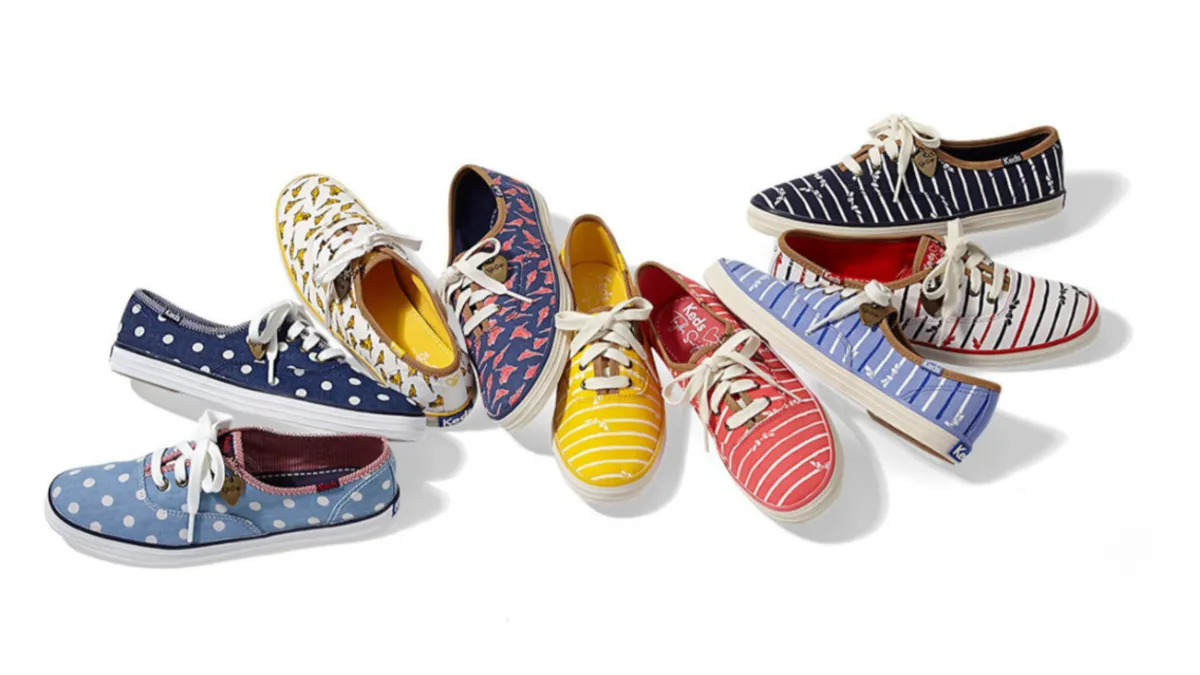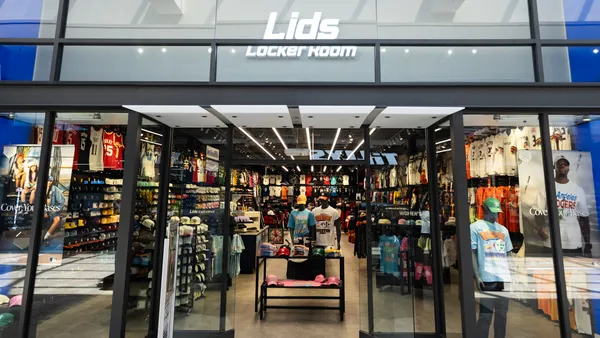Dive Brief:
- To cut costs and continue revenue growth, Wolverine Worldwide said it wants to license or divest its Keds and Wolverine Leathers businesses, according to a Thursday press release.
- The company said both divisions are low-profit contributors, and the decision to license or divest them stems from its desire to prioritize growth and increase long-term shareholder value.
- The company also laid off an undisclosed number of its employees last week, a move that is expected to save $30 million next year.
Dive Insight:
Wolverine Worldwide is reducing its workforce and exploring options for some of its portfolio shortly after announcing a brand group reorganization. The company said laying off workers and reorganizing its operations to save money elsewhere could save about $45 million total next year. The company also wants to build on supply chain cost initiatives that are already underway, which could save another $20 million in 2023.
In response to Retail Dive questions about the number of people impacted by the workforce reduction, a spokesperson said the company had no further comment.
“These decisions, particularly those related to our impacted team members, were not taken lightly. We greatly value the contributions of our talented colleagues and are committed to supporting impacted team members in their transitions,” Brendan Hoffman, Wolverine Worldwide’s president and CEO, said in a statement.
Last month, the company reorganized its assortment of brands into three groups: Active, Work and Lifestyle. It also hired Chris Hufnagel as president of the Active Group, Tom Kennedy as president of the Work Group and Katherine Cousins as president of the Lifestyle Group. It also established a Profit Improvement Office to accelerate cost savings.
“We believe the recent changes to our group reporting structure and the announcement of strategic alternatives for Keds and Wolverine Leathers, as part of our regular assessment of the portfolio, will put the business on an accelerated path to improved profitability and restore Wolverine as a best-in-class brand house,” Hoffman said in a statement. “In this rapidly evolving retail environment, agility is more important than ever. As such, I firmly believe that portfolio simplification and prioritization are essential to achieving our goals.”
The company has seen some recent growth, according to its third-quarter earnings reported earlier in the month, where revenue rose 8.6% year over year. But while its active and work divisions saw 13% and 11.2% growth, respectively, its lifestyle division saw a 6.9% dip. That revenue growth, though, was short of the company’s expectations due to supply chain issues, increased promotional activity and “deteriorating macro conditions,” Hoffman said in a statement at that time.
“We are facing congestion in our own U.S. distribution centers and inland transportation networks and many wholesale customers are currently dealing with heavier inventories and warehouse constraints,” Hoffman said.
Among the other brands within the company’s portfolio are Sperry, Hush Puppies and Saucony. In 2021, the company bought the activewear brand Sweaty Betty from the private equity firm L Catterton and other shareholders for about $410 million and kept its CEO, Julia Straus.












